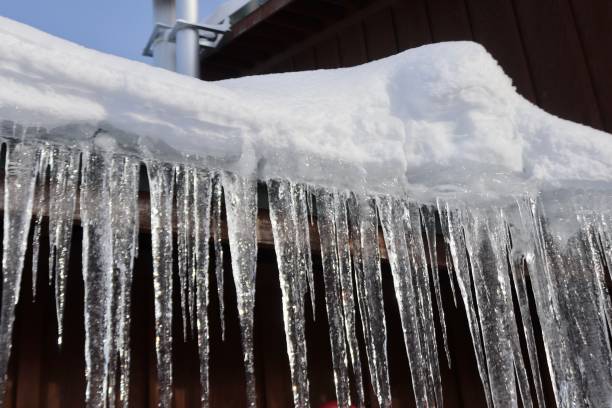Crucial Tips for Avoiding Frozen Plumbing in Winter Conditions
Crucial Tips for Avoiding Frozen Plumbing in Winter Conditions
Blog Article
Presented here on the next paragraphs you can locate additional high-quality information about Preventing and dealing with frozen pipes.

Cold weather can wreak havoc on your plumbing, specifically by freezing pipes. Below's how to stop it from occurring and what to do if it does.
Introduction
As temperature levels decrease, the threat of icy pipes increases, possibly resulting in pricey repair work and water damages. Understanding exactly how to prevent icy pipes is essential for home owners in chilly climates.
Prevention Tips
Protecting at risk pipes
Wrap pipelines in insulation sleeves or use heat tape to shield them from freezing temperature levels. Focus on pipes in unheated or external areas of the home.
Heating techniques
Maintain interior spaces properly heated up, especially locations with pipes. Open cupboard doors to permit warm air to distribute around pipes under sinks.
How to identify frozen pipelines
Search for reduced water circulation from faucets, unusual odors or noises from pipelines, and visible frost on revealed pipelines.
Long-Term Solutions
Structural changes
Take into consideration rerouting pipes away from exterior wall surfaces or unheated areas. Add extra insulation to attics, cellars, and crawl spaces.
Updating insulation
Purchase high-grade insulation for pipes, attics, and wall surfaces. Proper insulation aids maintain regular temperature levels and lowers the risk of frozen pipelines.
Protecting Outdoor Pipes
Yard hose pipes and outdoor taps
Detach and drain pipes garden tubes before winter season. Install frost-proof faucets or cover outdoor faucets with shielded caps.
Understanding Frozen Pipes
What creates pipelines to freeze?
Pipelines ice up when exposed to temperatures listed below 32 ° F (0 ° C) for expanded durations. As water inside the pipelines freezes, it expands, putting pressure on the pipe walls and possibly triggering them to burst.
Threats and problems
Frozen pipes can result in water supply disruptions, residential property damages, and costly repair services. Ruptured pipelines can flood homes and cause comprehensive architectural damages.
Indications of Frozen Pipeline
Determining frozen pipes early can stop them from breaking.
What to Do If Your Pipes Freeze
Immediate actions to take
If you suspect icy pipes, maintain taps available to alleviate stress as the ice melts. Make use of a hairdryer or towels soaked in warm water to thaw pipes gradually.
Final thought
Preventing frozen pipes needs proactive procedures and fast reactions. By recognizing the causes, indicators, and safety nets, house owners can protect their pipes during cold weather.
Helpful Tips to Prevent Frozen Pipes this Winter
UNDERSTANDING THE BASICS: WHY PIPES FREEZE AND WHY IT’S A PROBLEM
Water freezing inside pipes is common during the winter months, but understanding why pipes freeze, and the potential problems it can cause is crucial in preventing such incidents. This section will delve into the basics of why pipes freeze and the associated problems that may arise.
THE SCIENCE BEHIND FROZEN PIPES
When water reaches freezing temperatures, it undergoes a physical transformation and solidifies into ice. This expansion of water as it freezes is the primary reason pipes can burst. As the water inside the pipe freezes, it expands, creating immense pressure on the walls. If the pressure becomes too great, the pipe can crack or rupture, leading to leaks and water damage.
FACTORS THAT CONTRIBUTE TO PIPE FREEZING
Low Temperatures: Extremely cold weather, especially below freezing, increases the risk of pipes freezing. Uninsulated or Poorly Insulated Pipes: Pipes located in unheated areas, such as basements, crawl spaces, or attics, are more prone to freezing. Insufficient insulation or lack of insulation altogether exacerbates the problem. Exterior Wall Exposure: Pipes running along exterior walls are susceptible to freezing as they encounter colder temperatures outside. Lack of Heating or Temperature Regulation: Inadequate heating or inconsistent temperature control in your home can contribute to frozen pipes. PROBLEMS CAUSED BY FROZEN PIPES
- Pipe Bursting: As mentioned earlier, the expansion of water as it freezes can cause pipes to burst, resulting in significant water damage.
- Water Damage: When pipes burst, it can lead to flooding and water damage to your property, including walls, ceilings, flooring, and personal belongings.
- Structural Damage: Prolonged exposure to water from burst pipes can compromise the structural integrity of your home, leading to costly repairs.
- Mold and Mildew Growth: Excess moisture from water damage can create a favorable environment for mold and mildew growth, posing health risks to occupants.
- Disrupted Water Supply: Frozen pipes can also result in a complete or partial loss of water supply until the issue is resolved.
WHY CERTAIN PIPES ARE MORE PRONE TO FREEZING
- Location: Pipes located in unheated or poorly insulated areas, such as basements, crawl spaces, attics, or exterior walls, are at higher risk of freezing.
- Exterior Pipes: Outdoor pipes, such as those used for irrigation or exposed plumbing, are particularly vulnerable to freezing as they are directly exposed to the elements.
- Supply Lines: Pipes that carry water from the main water supply into your home, including the main water line, are critical to protect as freezing in these lines can affect your entire plumbing system.
- Underground Pipes: Pipes buried underground, such as those connected to sprinkler systems or outdoor faucets, can be susceptible to freezing if not properly insulated.
https://busybusy.com/blog/helpful-tips-to-prevent-frozen-pipes-this-winter/

We were shown that report on Helpful Tips to Prevent Frozen Pipes this Winter through a friend on a different website. Do you know somebody who is fascinated by the topic? Why not promote it. Thanks a lot for taking the time to read it.
Free Estimates Report this page